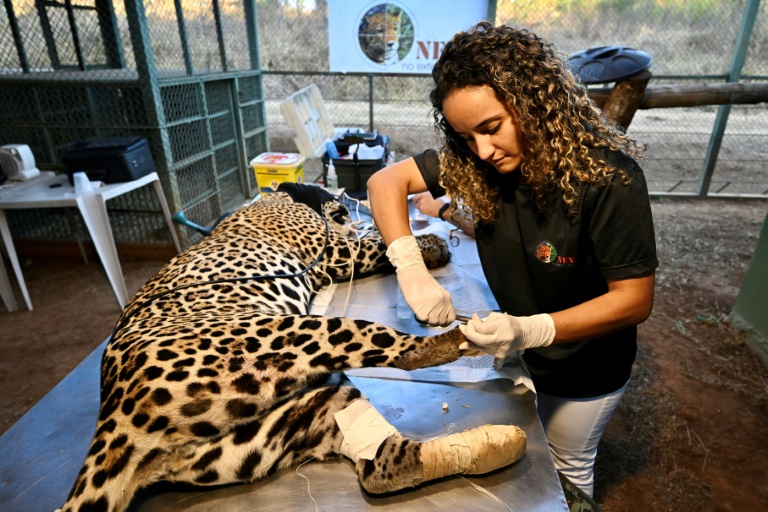A report from environmental and human rights groups on Tuesday linked three major meatpacking companies to illegal deforestation in Brazil, accusing farmers of spraying herbicides from the air to clear large swaths of land.
The farmers used 2,4-D, a herbicide found in Agent Orange that is notorious for its use during the Vietnam War, to clear 81,200 hectares of the Pantanal wetlands, a UNESCO World Heritage site, according to the report by Mighty Earth, Reporter Brasil and AidEnvironment.
Through ‘chemical deforestation’ they cleared an area four times the size of Amsterdam to make room for livestock in what is intended to be a biodiversity haven.
The report accuses meatpackers JBS, Marfrig and Minerva of doing business with farmers involved in the illegal activities.
They in turn supply beef products to retailers such as Carrefour, Casino/GPA, Grupo Mateus and Sendas/Assai, the company added.
“The deliberate killing of countless trees and wildlife in the Pantanal through aerial spraying of the highly toxic substance ‘Agent Orange’ is a devastating new war on nature waged by the beef industry,” said Joao Goncalves, director of Mighty Earth Brazil.
In addition to killing plants, the chemicals can also pollute water and pose a danger to fish, animals and even humans.
According to Vietnam, Agent Orange, a substance used by U.S. troops to destroy ground cover and food sources during the 1962-71 war with North Vietnamese troops, is responsible for serious birth defects in 150,000 children.
A farmer involved in the “chemical deforestation” campaign in the Pantanal has been charged with numerous environmental crimes and fined more than $520 million.
– ‘The biome cannot resist’ –
The report found that JBS slaughterhouses were responsible for nearly 470,000 hectares of deforestation and land-use change in the Brazilian Amazon and Cerrado tropical savanna between 2009 and 2023.
“Including the Marfrig and Minerva Foods slaughterhouses, the total area destroyed during this period is more than 550,000 hectares. Of this total, 55 percent is in the Cerrado biome and 45 percent in the Amazon,” the report said.
The NGO’s report was published as the Pantanal, the world’s largest wetland, is battling devastating forest fires that have injured several jaguars, among other animals. These animals are listed as ‘near threatened’ on the International Union for Conservation of Nature’s Red List.
According to authorities, many of the fires were deliberately set, often to clear land for agriculture.
“The biome is not resilient to fire and rampant chemical deforestation,” Goncalves said.
“The big beef companies must urgently suspend all livestock farmers who want to destroy nature for profit.”
JBS said in a response accompanying the report that the cases cited do not appear in any database or alert system the company uses for monitoring.
The company added in a statement to AFP that its policy “does not tolerate illegal deforestation”.
Marfrig said that at the time the cattle were received from a ranch named in the report, the supplier “met all socio-environmental criteria.”
Minerva said she had nothing to do with the same farm.
Carrefour, for its part, said that “none of the five farms mentioned is (a) supplier to the Carrefour Brazil group.”
raa/app/mr/mlr/cb/st

